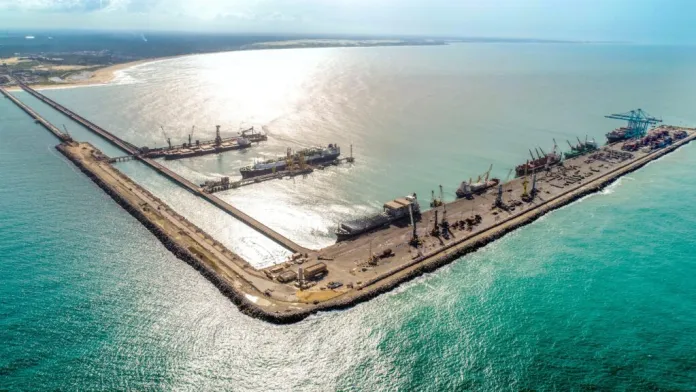Inauguration of India’s First Hydrogen-Powered Ferry

In a landmark event towards sustainable transportation, PM Modi has virtually inaugurated India’s first indigenously developed hydrogen-powered ferry.
This vessel, powered by hydrogen fuel cells, is developed by Cochin Shipyard Limited (CSL) in Kerala representing a significant step towards eco-friendly maritime travel.
A Milestone in Sustainable Transportation
The hydrogen-powered ferry, a catamaran design, signifies a major advancement in India’s water transportation sector.
This ferry is designed and built by CSL and is set to revolutionise short-distance travel with its operation first commencing on the Ganga River in Varanasi, Uttar Pradesh.
Modi hailed the project as a “great present to the people of Kashi,” highlighting its importance in India’s roadmap towards a developed and sustainable future.
Key Features and Capacity
This ferry is fully air-conditioned and can accommodate up to 50 passengers, promising a blend of efficiency and eco-friendliness.
The hydrogen fuel cell technology ensures zero emissions, aligning with the central government’s ambitious goal to eliminate greenhouse gas emissions by 2070.
An added advantage would be, unlike fossil fuels, these ferries do not pollute water, impair aquatic life or contaminate natural water bodies.
Inaugural Journey and Operational Plans
On its maiden voyage, the hydrogen ferry travelled from CSL to the High Court Water Metro terminal in Kochi, showcasing its operational readiness.
The Inland Waterways Authority of India (IWAI) has reported that the vessel will be en route to Varanasi, having recently crossed the New Navigational Lock at Farakka in West Bengal.
The ferry will soon be deployed on the River Ganga, further extending its sustainable impact.
Technical Excellence and Development
The entire hydrogen ferry system, including the fuel cell, power train, energy storage system, power management system, and control system, has been designed, developed, integrated, and tested at the Kirtaney Pandit Information Technologies (KPIT) factory in Cochin before installation.
According to CSL, this project is part of broader efforts to adopt hydrogen as a maritime fuel, contributing significantly to the reduction of global warming impacts and enhancing energy efficiency.
Government’s Vision and Future Prospects
Modi emphasised the importance of such innovative projects in India’s journey towards sustainable development.
He stated: “New projects like this are an important part of the roadmap for a developed India.”
The government remains committed to advancing hydrogen fuel technology, supporting initiatives that promote environmental sustainability and energy efficiency.
Byline: Vidhathri Matety

